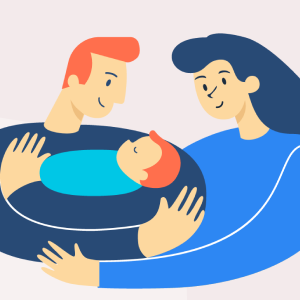Unlike type 2 diabetes, a condition commonly found in older adults, type 1 diabetes is often diagnosed in children. While in type 2 diabetes, the body is unable to use insulin properly, type 1 diabetes occurs when the insulin production is disrupted, resulting in high blood glucose levels.
What You Should Know About Type 1 Diabetes
Fakta Disemak oleh Hello Doktor Medical Panel
What causes Type 1 diabetes?
Insulin is a hormone produced by your pancreas to lower your blood sugar levels. When your pancreas is no longer able to secrete insulin, your blood sugar increases, causing diabetes. This condition may be related to some gene mutations; however, environmental factors play a much greater role in triggering the disease.
Possible complications
If left untreated, diabetes (both type 1 and type 2) can lead to necrosis. It is a condition in which the cells in your body cannot receive glucose from your blood and slowly die. Another life-threatening complication is diabetic ketoacidosis. In diabetic ketoacidosis, ketones accumulate in the blood, making it acidic and affecting many organs including the brain.
Diabetes also has other serious complications:
- Cardiopathy. Diabetes dramatically increases your risk of various cardiovascular problems, including coronary artery disease with chest pain (angina), heart attack, stroke, narrowing of the arteries (atherosclerosis) and high blood pressure.
- Neuropathy. Concentrated glucose in your blood can damage your nerve, causing tingling, numbness, burning or pain that usually begins at the tips of the toes or fingers and gradually spreads upward. You could lose all of your sensation if your blood sugar is not controlled. Damaged nerves may lead to many disorders such as nausea, vomiting, diarrhea or constipation and erectile dysfunction in men.
- Nephropathy. The kidneys contain millions of tiny blood vessel clusters that filter waste from your blood. Diabetes can damage this delicate filtering system. Severe damage can lead to kidney failure or irreversible end-stage kidney disease, which requires dialysis or a kidney transplant.
- Eye damage. Diabetes can destroy the blood vessels of the retina (diabetic retinopathy), potentially leading to blindness and other serious vision conditions, such as cataracts and glaucoma.
- Skin and mouth conditions. Diabetes could make you more susceptible to skin problems, including bacterial and fungal infections.
- Pregnancy complications. High blood sugar levels can endanger both the mother and the baby. You have a higher risk of miscarriage, stillbirth and birth defects when your diabetes is not well controlled. For the mother, diabetes increases the risk of diabetic ketoacidosis, diabetic retinopathy, pregnancy-induced high blood pressure and preeclampsia.
Without proper treatment, diabetes can be a nightmare with all the devastating complications. However, if you follow carefully your doctor’s directions, take medicines and adopting a healthy lifestyle, diabetes can absolutely be managed and you can still enjoy a fulfilling life.
Penafian
Hello Health Group tidak menawarkan nasihat perubatan, diagnosis atau rawatan.
Fakta Disemak oleh
Hello Doktor Medical Panel






















Komen
Kongsi komen anda
Ayuh jadi yang pertama untuk memberi komen!
Sertai Kami atau Log Masuk untuk menghantar komen